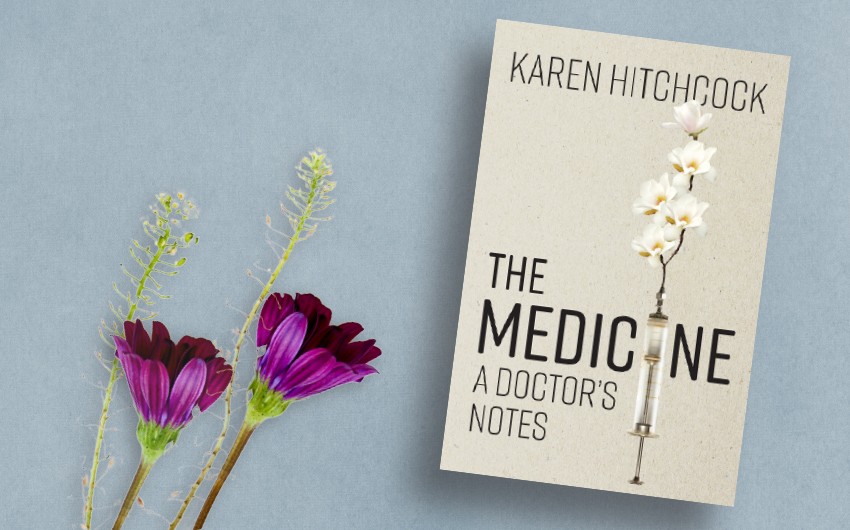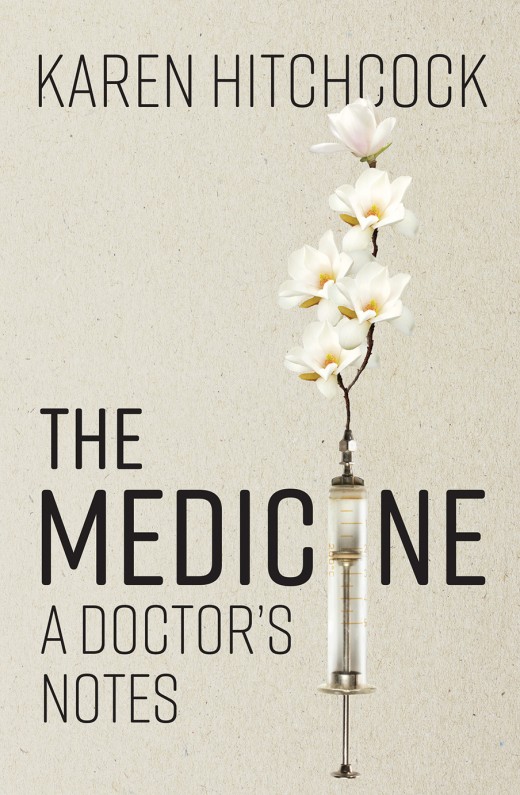News

News >
The Medicine extract: Germ Welfare
In ‘Germ Welfare’, an extract from The Medicine, Karen Hitchcock examines the ‘civic duty’ of wearing face masks when sick in public.
In my first year of medical school we had a term of lab-based microbiology specifically designed to make us hyper-vigilant about germs. The teacher knew she had to make it personal if she was to have any chance of switching us from walking instruments of germ warfare into safe, sterile clinicians. She’d get us to perform experiment after experiment, and the list of equipment always included our own bodies. She’d have us wipe our finger across a Petri dish lush with faecal bacteria and then wrap our contaminated finger in six layers of toilet paper. We’d then press our wrapped finger onto a clean Petri dish and watch the evil colonies bloom. We did the same thing with “clean” hands, after shaking hands, after sticking a finger up our nose. She neither minced her words nor softened her blows. Her message to us was this: we were cesspits. And she had a community to protect.
I’d had a period of germ phobia in the early ’90s. It started in Myer: sixth floor, men’s collections. I worked there throughout my arts degree. One day Gwen came to work sick. She could barely stand up but liked us to think of her as stoic. She was at the counter, folding a sheet of tissue paper around some guy’s new shirt, and I was behind her, leaning against the wall and daydreaming. Her shoulders heaved and she spun around to unleash a sneeze directly into my face. Happy she’d protected her customer from snot, she turned back, handed the man his bag, bid him a nasal good day, wiped her nose with her fingers and fondled the till. The next day I was in bed with a temperature of forty, my throat, lungs and muscles all under siege. According to my doctor it was “the real flu” followed a week later by a “superimposed bacterial pneumonia”. I had no idea and didn’t give a damn about the difference between a virus and a bacterium, but by the time I stopped coughing I was a skinny, weak wretch, and for about a year the world – that cesspit – was my enemy.
To catch a respiratory or gastroenterological virus you need to let it into your body. It can’t pass through skin; its portals to your guts and lungs are the mucus membranes of your major public orifices (mouth, nose, eyes). Inhale a sick person’s breath and you’re a goner. Same if you touch a “fomite” (an object they’ve touched) and then put your finger to one of your portals. Air breathed by someone with the measles virus remains contaminated for two hours after they’ve left the room. The Centers for Disease Control and Prevention recommends keeping a distance of 6 feet between yourself and a person with a cold. Try following that advice in a peak-hour train mid-winter. CDC also recommends that sick people wear surgical masks in public, to protect those around them, “if tolerable”.
I was recently in Shanghai, and frequently passed people in shops and on the street wearing surgical masks. In some places they’re worn to filter the polluted air, but they’re also worn throughout Asia in an act of civic duty: to protect others from the wearer’s germs. Every time I saw someone in a mask I’d feel a great rush of gratitude, and wonder if this considerate, communitarian act was rooted in communism, or perhaps Buddhism. In Australia, if you were to back away from a colleague with a cold, or refuse a kiss from a sick friend, you’d more likely than not be considered ill-mannered, if not paranoid. It would have been offensive to point out to the sick doctor, sitting right beside me, bemoaning her terrible symptoms while repeatedly sighing her wet, virus-loaded breaths directly into my face, that her actions were uncharitable. To hand her a mask? Unspeakably rude.
I thought of those masks and all they signify when I heard about the recent outbreaks of measles and chickenpox in affluent areas of Australia and the US. Bloody anti-vaxxers, I thought. Where’s their sense of civic duty? To be fair, it’s not only “neoliberal” parenting (as one commentator pretty accurately deemed it), it’s also about mistrusting authorities. I’m all for that, but these guys are punk rock in the same way as the climate-change deniers. About 5 per cent of the population can opt out of measles immunisation and seek shelter in the dutifully jabbed herd. The figure’s 10 per cent for chickenpox. Any more than that puts us at risk of an outbreak. Given these facts, refusing vaccination is not intellectual bravery; it’s self-entitled. It’s awfully impolite. And the rest of us politely accommodate their stance.
We would not likely be so obliging were we facing outbreaks of viruses whose names still make us tremble: Ebola or Zika. Rejecting measures that protect the greater community from headline horrors wouldn’t be framed as “alternative” or “freedom of choice”. When it comes to public health, the personal is communal. Plato said that to have a “healthy” city, people must act as each other’s partners and helpers. His alternative is a doomed “fevered” city: a place where everyone acts for themselves.
Last weekend a registrar fronted to work with a cough and streaming nose. I suggested he go home. He shrugged. “I’m okay, and there’s no one to replace me.” Malcolm Gladwell writes that politeness can be socially detrimental when the stakes are high. It’s cowardice in disguise. In some situations you simply have to tolerate the discomfort that can come from being rude. I considered my options (we were already a registrar down and the place was crawling with patients), asked the registrar to wait a minute, walked to the storeroom and came back holding a mask. Feeling a stab of guilt, I held out the mask and said, “I appreciate your dedication, but I want you out of here as soon as possible. And while you’re here, you’re wearing this.”
Share this post
About the author
Dr Karen Hitchcock is a general physician whose clinical work has focused on pain, fatigue, medically unexplained symptoms and obesity. She holds a PhD in English and writes regular essays for The Monthly. She is the author of the Quarterly Essay Dear Life and the story collection Little White Slips, which won the Steele Rudd award in the 2010 Queensland Premier’s Literary Awards. Hitchcock was one of the first authorised prescribers of medicinal cannabis in Australia.
More about Karen Hitchcock




